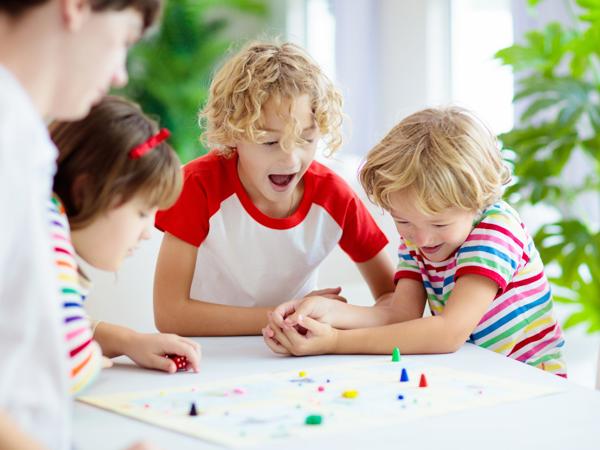Board games offer a delightful way to engage children aged 6 to 8. At this age, kids are developing important skills like strategic thinking, cooperation, and problem-solving. A well-selected board game can not just entertain but also subtly enhance these skills. Let's dive into some board game options for this age group and see how they can be both fun and educational.
Understanding the Age Group
Children between 6 to 8 years are typically in the early stages of developing cognitive and social abilities. Their ability to follow more complex game rules is just beginning to flourish, and their excitement to explore new ideas is often palpable. Therefore, games with simple yet engaging mechanics are ideal.
Game Recommendations
1. Candy Land
Candy Land is a classic choice that never seems to age. It's perfect for younger children as it requires no reading. The game involves moving pieces along a colorful path, teaching children about taking turns and basic counting. Though simple, it can still offer a delightful experience, especially for kids just beginning their journey into board games.
2. Enchanted Forest
Enchanted Forest is a whimsical game that offers slightly more complexity, fitting well for children at the upper end of this age group. It combines elements of memory with a treasure hunt, encouraging kids to remember the locations of various fairy tale treasures scattered across the board. This is a fantastic way to subtly enhance memory skills while keeping the excitement alive with its magical theme.
3. Guess Who?
Guess Who? gives children the chance to practice deduction and strategic thinking. Players try to guess the opponent's character by asking yes or no questions. This game is simple enough for young kids to play independently, yet challenging enough to keep their attention and encourage logical thinking.
4. Outfoxed!
Outfoxed! is a cooperative board game that involves teamwork and strategy. Kids work together to solve the mystery of the missing pot pie. This game encourages cooperative play and communication as players share information and strategize together, making it a wonderful tool for teaching teamwork.
5. Sleeping Queens
Sleeping Queens is a charming card game invented by a six-year-old girl. The game involves waking up sleeping queens using strategy and some basic math skills. It's quick to learn and has delightful artwork that captures the imagination, making it a hit with this age group.
Game Benefits for Children
While board games primarily serve as a source of fun and entertainment, the secondary benefits are vast. A study published by The American Journal of Play highlights that board games can enhance skills such as reading, counting, and social interaction through play.
Enhancing Social Skills: Many games promote social interaction, whether through cooperative gameplay or friendly competition. Kids learn how to handle winning or losing gracefully.
Developing Critical Thinking: Games that require strategy help children learn to think ahead and plan their moves carefully.
Boosting Focus and Patience: Waiting turns and playing to completion helps children improve focus and patience, virtues that are critical in and outside the gaming world.
Conclusion
Board games for children aged 6 to 8 are more than just leisure activities. They can foster an environment for growth, learning, and entertainment. Choosing the right game depends on the child's interests and developmental needs. By incorporating games into routine playtime, children can enjoy fun-filled moments while grasping foundational skills that will serve them well in the future.
Explore these suggestions with them and see which ones spark the most joy and curiosity in their eyes.




